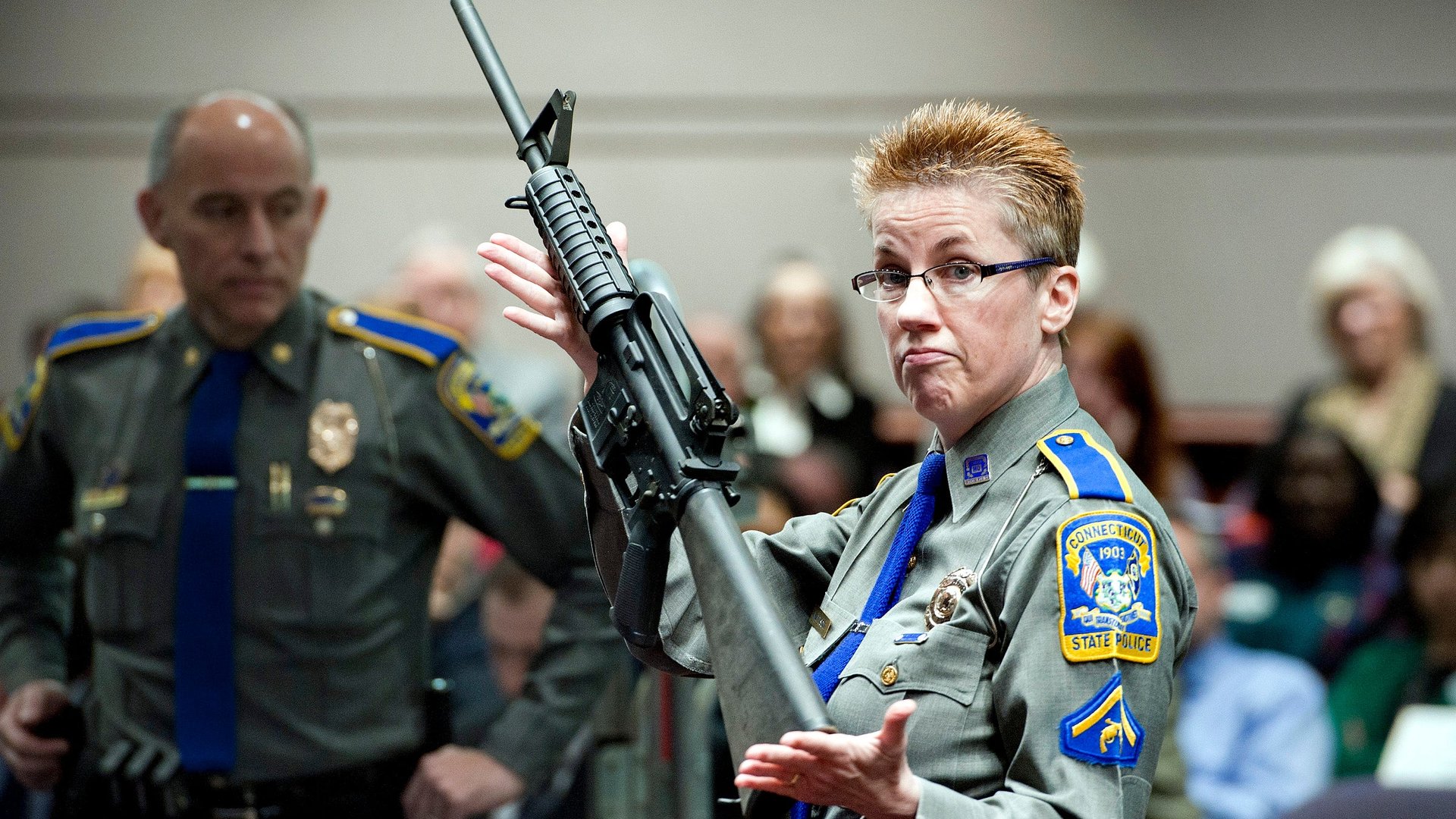The law Bernie Sanders backed to protect the gun industry is being used to fight the Sandy Hook lawsuit
Bushmaster, the company that made the semi-automatic rifle used in the killing of 20 children and six adults at Sandy Hook Elementary School in Connecticut in 2012, will cite a gun law backed by Bernie Sanders to block a lawsuit brought by the victims’ families.


Bushmaster, the company that made the semi-automatic rifle used in the killing of 20 children and six adults at Sandy Hook Elementary School in Connecticut in 2012, will cite a gun law backed by Bernie Sanders to block a lawsuit brought by the victims’ families.
The lawsuit argues the weapon has no purpose other than killing humans. It has gained surprising traction, including the right to obtain documents from the gunmaker.
Bushmaster is a subsidiary of Remington Outdoor, the company owned by private equity mogul Stephen Feinberg and partners at Cerberus Capital Management. They announced efforts to sell the company after the Sandy Hook killings, but have yet to ink a deal.
The law the company will rely on is the Protection of Lawful Commerce in Arms Act. It passed in 2005, as New York City prepared a massive lawsuit against 14 gunmakers who, the city said, repeatedly sold weapons to dealers they knew had a history of making sales to criminals. The new law upended the city’s case by giving gun manufacturers blanket immunity from liability.
Gun safety activists say that the law is an example of the gun lobby’s power in Congress, and that it almost single-handedly halted one of the most promising legal approaches to keeping military-style weapons off the streets.
The law has figured into the 2016 Democratic primary election between the party’s presumptive nominee, Hillary Clinton, and Sanders, who has yet to concede despite a multimillion-vote deficit. When Sanders argued that Clinton was too close to the financial sector and other business lobbies, Clinton volleyed back that Sanders repeatedly backed bills that favored the gun industry and that he voted against gun control laws after the stance helped him win election.
At first, Sanders defended his record, arguing in a October debate that “if somebody has a gun and it falls into the hands of a murderer and that murderer kills somebody with the gun, do you hold the gun manufacturer responsible? Not any more than you would hold a hammer company responsible if somebody beats somebody over the head with a hammer.”
Gun safety advocates say Sanders missed the point of laws requiring businesses to be responsible for marketing unsafe products; indeed, many restrictions on banks undertaken by the Consumer Financial Protection Bureau, an agency Sanders backed, function along similar lines.
Under withering criticism, Sanders soon changed his position, saying he would back efforts to repeal the law.
The families’ lawsuit is trying to get around the immunity law by arguing not that the company sold its guns to specific people who would use them negligently, but that AR-15 style rifles are so dangerous that offering them to the general public is itself negligent. They plan to cite extensive Bushmaster marketing materials describing the gun as a “the ultimate combat weapons system.”
The trial resumes today (June 20) with a hearing in Connecticut superior court.